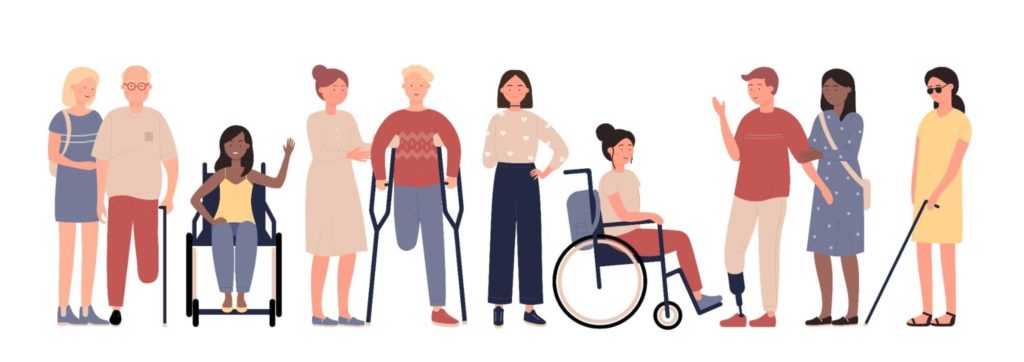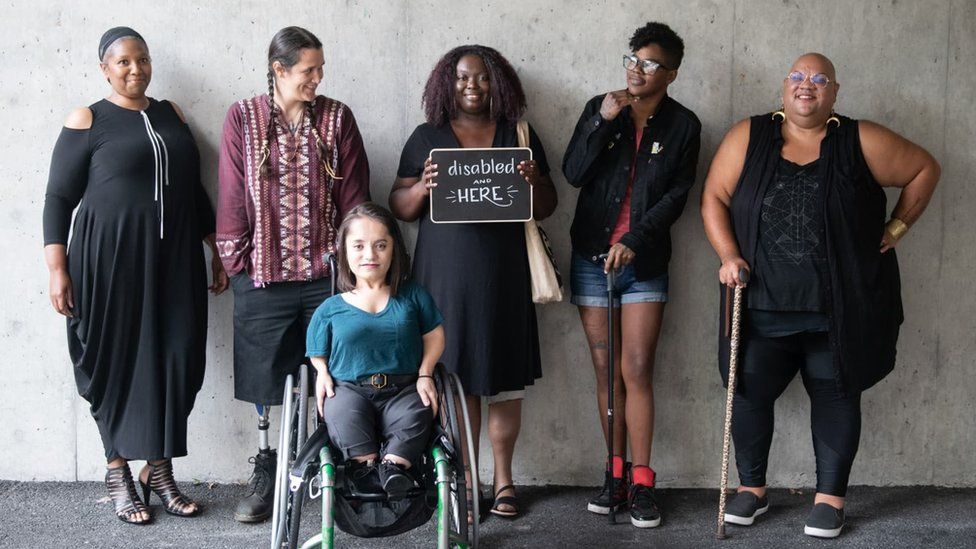AMNA NAFISA
Inequality in Health Service
Social inequality refers to a situation in which individuals or groups in a society do not have equal social treatments, especially towards people with disabilities. Non-disabled people have a variety of attitudes toward the disabled. These negative attitudes have caused people with disabilities to distance themselves. The disabled have been excluded as the rest of the nation goes on with their lives. Whether it is temporary or permanent, virtually everyone is going to face some sort of handicap at some point in their lives. When people with disabilities access healthcare, they often receive poor-quality services. The inequality in health services for disabled people is caused by attitudinal barriers, communication barriers, and physical barriers.
The most fundamental barriers are those that affect attitudes and cause additional barriers. For instance, some individuals might not be aware that obstacles to entering or leaving a location can prevent someone with a handicap from taking part in daily life and routine activities. This occurs because a large number of service providers lack proper training and guidance regarding disabilities, as well as awareness and knowledge of the rights and health requirements of individuals with disabilities.These might cause someone to overlook or have misconceptions about those who are disabled.
Next, people who use different types of communication than others who do not have these impairments experience communication challenges. Some of the health services do not know how to communicate with these people. This is because few health services have access to written materials or sign language interpreters. A challenge for those with a visual impairment is the lack of accessible formats, such as Braille or large print, for medical information or prescriptions. These would cause long waiting lists and take a longer period of time to get the services.
Other than that, physical barriers are limitations that are built into the environment that limit or restrict access or mobility, whether they are created naturally or by humans. Due to the lack of a wheelchair-accessible weight scale or one that can be used by people who have trouble stepping up, as well as steps and curbs that prevent someone with limited mobility from using a sidewalk or getting into a building, it can lead to bigger problems, like making it difficult to navigate for people with mobility impairments.
In a nutshell, the World Health Organization (WHO) needs to improve access to and coverage of health services for people with disabilities, such as guides and supports for member states, to increase awareness of inequalities in disability issues.
References
Disability and health. (2021, November 24). World Health Organization (WHO). Retrieved November 16, 2022, from https://www.who.int/news-room/fact-sheets/detail/disability-and-health
"Living life as a disabled person"
Learning something new can be a scary experience. One of the most challenging things I’ve ever had to do was join the volunteers who work with people who are living with disabilities. Discriminating against those who are disabled doesn't make their lives any easier since living with a disability is already difficult enough. The difficulties faced by the disabled are beyond anything we non-disabled people have ever known. What I didn’t realise was that people treat disabled people with zero respect. To make their lives better and to support them, they should be treated with respect.
New situations always make me a bit nervous, and my first volunteer experience with disabled people was no exception. After I arrived at my destination, I stood timidly by the side of the volunteer-truck waiting for the leader to brief us on what we should do. After a couple of minutes the leader came over. She smiled and started to give a briefing. I began to feel more at ease. My part was to clean up the toilets. When I was cleaning the toilets I heard someone crying loudly.
Without wasting time, I checked on her to see whether she was okay or not. I asked her, "Are you okay ?" and she replied, "No, I’m not" I said, "I’m sorry to hear that. Would you like to talk about it?" and she answered, "Last month, I had a car accident and I was diagnosed with a disability which is mobility impairment. Since then, people around me started to treat me disrespectfully and throw hatred at me. Only if they knew how low my self-esteem is. It makes me very depressed because of my disability. Not only that, when it comes to my job, I need a parking space that is close to my office but my employer only gives parking spaces to senior managers and refuses to give me a designated parking space. I feel so unjustly treated. It would be appropriate for an organisation to reserve a parking space near the entrance for the employee if it currently had a few of them available. I’ve read somewhere that disabled people can experience discrimination if someone doesn’t make reasonable adjustments."
The moral of the story is that the disabled should be valued because they are people just as we are and want the ability to live life just like everyone else and be treated the same. I think if society accepted that everyone is different, the world would be a better place. People need to stop assuming things about others who are different from themselves and change the way they view other people. Their lifestyles may be improved if the government were to enforce tighter controls for those with impairments.


.jpg)

Comments
Post a Comment